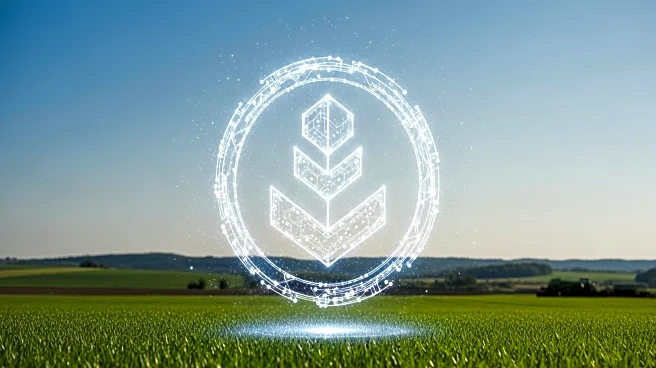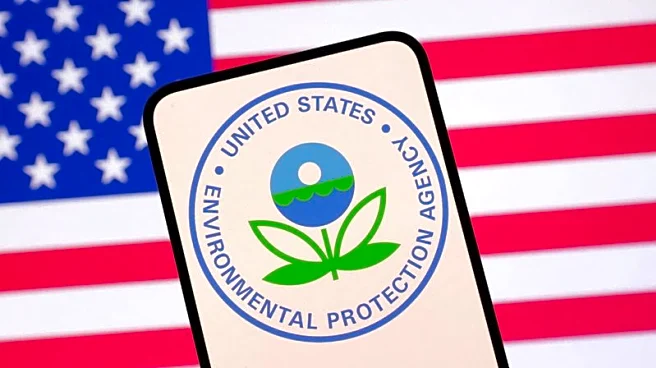What's Happening?
The blockchain in agriculture market in the United States is expected to grow significantly, reaching $5,570.71 million by 2032, according to a report by DataM Intelligence. The market, which was valued at $352.56 million in 2024, is projected to grow at a compound annual growth rate (CAGR) of 41.20% from 2025 to 2032. Blockchain technology is being increasingly adopted in the agriculture sector to enhance transparency, traceability, and efficiency across the food supply chain. It helps verify product authenticity, reduce fraud, and improve food safety through immutable data records. The technology also supports fair trade, streamlined payments for farmers, and better management of agricultural logistics and sustainability initiatives. Recent trends in the U.S. food sector include the adoption of AI-driven blockchain systems to track fresh perishables, ensuring rapid recall actions and enhanced food safety.
Why It's Important?
The integration of blockchain technology in agriculture is crucial for improving food safety and supply chain transparency. As consumer demand for ethical and environmentally compliant products grows, blockchain provides a decentralized and immutable record of compliance, which is vital for sustainability verification and carbon footprinting. This technological advancement not only benefits consumers but also supports farmers and food manufacturers by streamlining payments and logistics. The projected growth of the blockchain in agriculture market indicates a significant shift towards digitalization in the sector, which could lead to increased efficiency and reduced fraud. Companies like IBM Corporation and TE-FOOD International GmbH are leading the charge in this transformation, potentially setting new standards for agricultural practices globally.
What's Next?
The ongoing adoption of blockchain technology in agriculture is likely to continue, driven by increasing consumer and corporate demand for transparency and sustainability. As more companies integrate blockchain systems, the market could see further innovations in supply chain management and food safety protocols. Additionally, the use of blockchain for carbon footprinting and sustainability verification may become more prevalent, influencing corporate strategies and consumer choices. The expansion of blockchain applications in agriculture could also lead to new partnerships and collaborations between tech companies and agricultural businesses, further driving market growth.
Beyond the Headlines
The adoption of blockchain in agriculture not only impacts food safety and supply chain transparency but also raises ethical and legal considerations. The technology's ability to provide immutable records of compliance could lead to stricter regulations and standards in the industry, affecting how companies operate and report their practices. Furthermore, the shift towards digitalization in agriculture may require significant investment in technology infrastructure, posing challenges for smaller enterprises. As blockchain becomes more integrated into agricultural practices, it could also influence cultural perceptions of food production and consumption, potentially leading to changes in consumer behavior and preferences.










